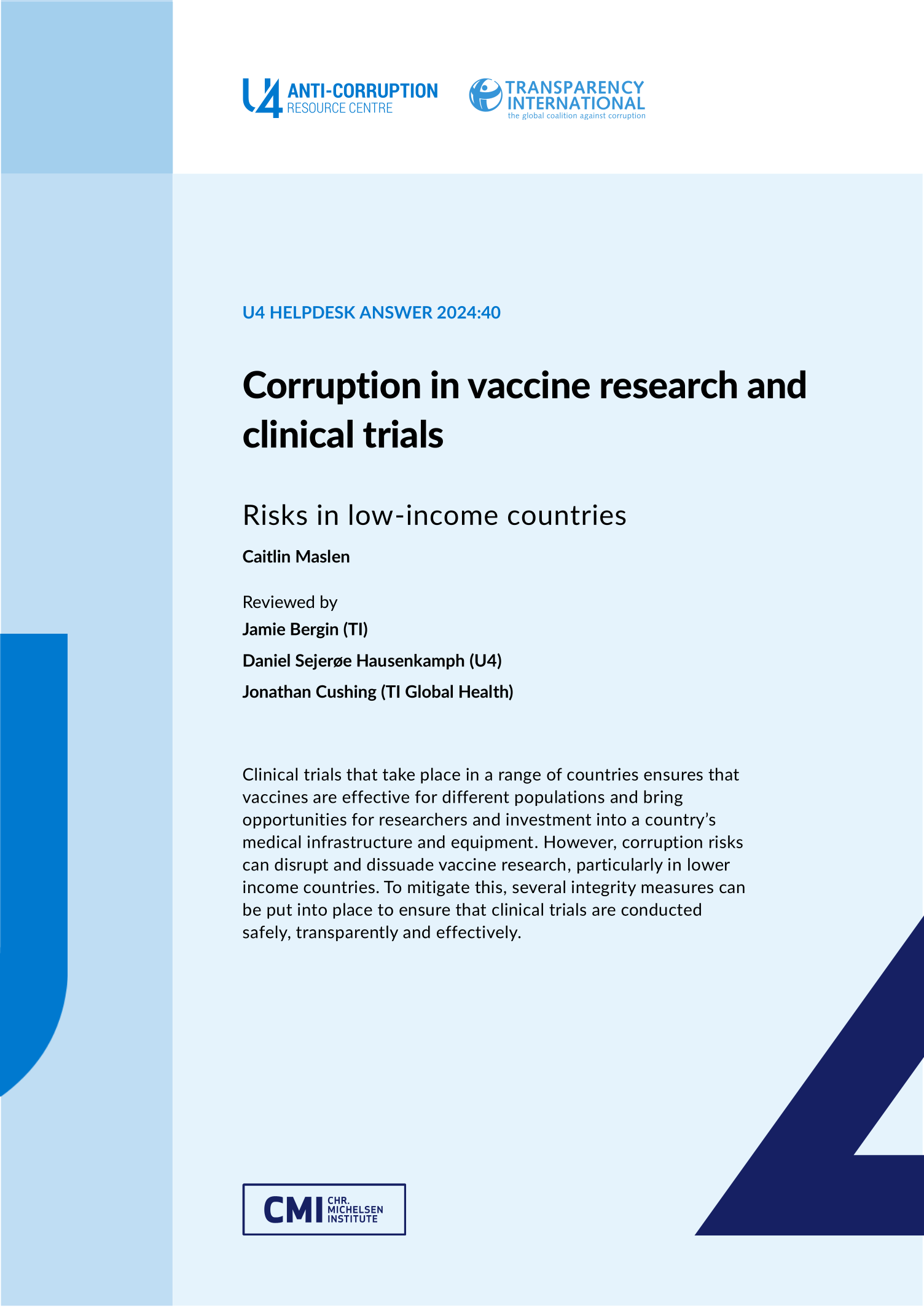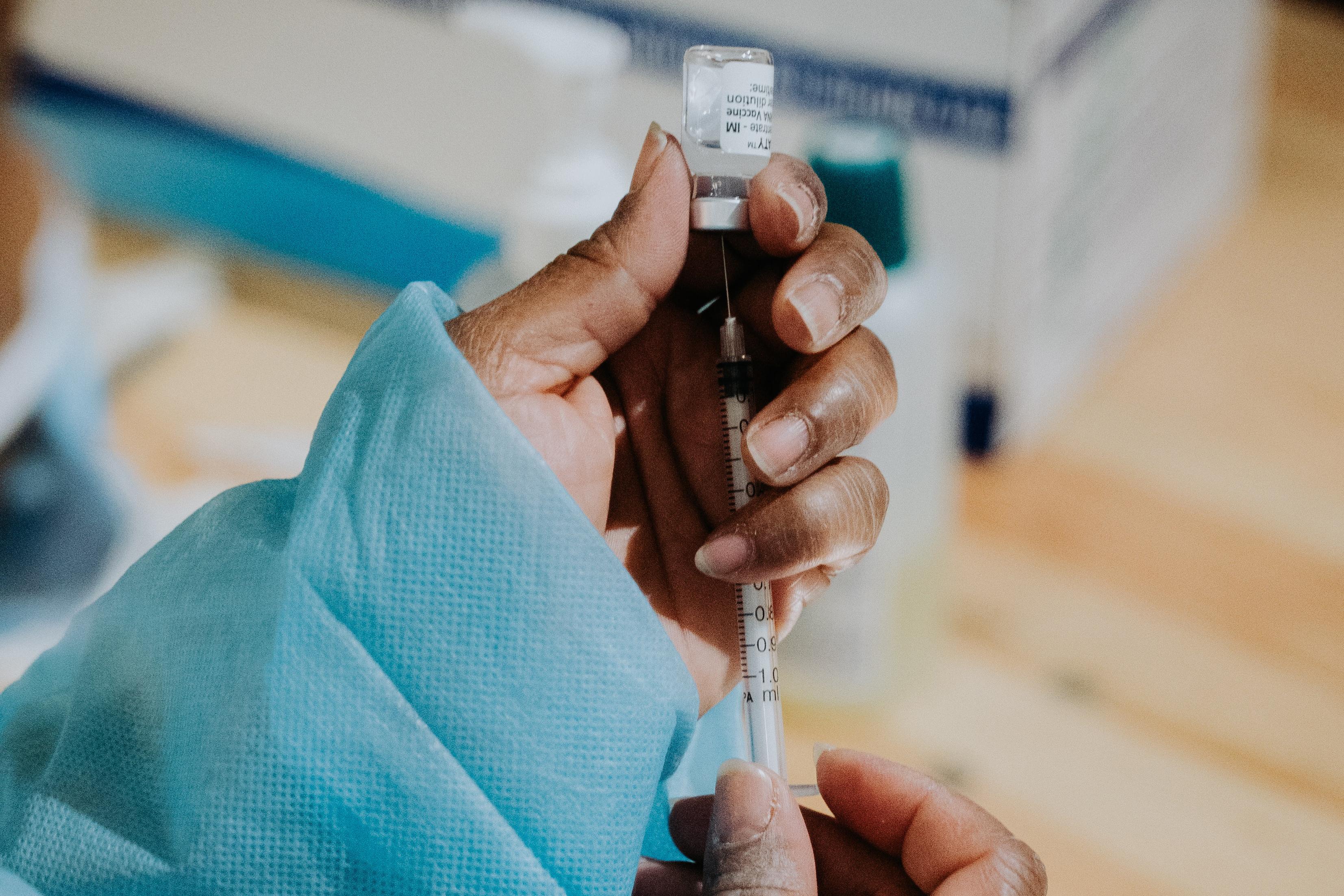Main points
- Currently, the majority of vaccine research takes place in higher income countries, largely because the funding tends to originate in these countries. However, research in low-income countries is also increasing, which can benefit local populations through the wider distribution of more effective vaccines.
- There are corruption risks when conducting vaccine research and clinical trials, and this may be exacerbated in contexts where there is weaker regulatory oversight. These can include the risks of undue influence by large pharmaceutical companies, bribery and misappropriation of the research funds, and distortion of the data produced during the clinical trial to favour particular stakeholders’ objectives. Corruption in clinical trials in low-income countries also discourages further investment and leads to the exploitation of local populations.
- These risks can be mitigated with a combination of several measures, including ensuring that the trial site adheres to international guidelines, independent oversight of the research and risk assessments. Red flags indicating evidence distortion can also trigger additional monitoring of the trial site.


